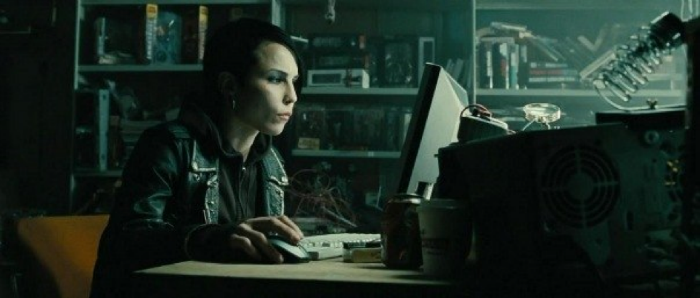Why do hackers really attack the exchanges and is the problem so big?

James Lewis, senior cybersecurity researcher at the US Center for Strategic and International Studies, told The Washington Post about how real cyber security is of stock exchanges. We present you an adapted version of this note.
When on July 8, 2015, trading on the New York Stock Exchange (NYSE) was abruptly stopped , it immediately became clear which version of the incident seemed most likely to the public. “Let's hope this isn't hacking,” one of the financial managers said in an interview with USA Today. “Do they really think that we are idiots?” - the bloggers were outraged in response to the statement of the stock exchange employees that the 4-hour break in the work was caused by a system failure. In social media, there was a distrust of the “official” version of what happened.
')
Why the world wants to believe in hackers involvement in market failures
The reaction of the American public is explicable: for 20 years now we have been waiting for “cyber pearl harbor” to happen, an unprecedented and loud crime in the field of Internet security. Instead, we are constantly faced with silent cyber espionage and secretly robbed banks. Now, when something really “noticeable” happens, and next to it there is a computer connected to the network, the alarms in the minds of people are turned off. An attempt to accuse the all-powerful hackers of what happened is an attempt to present what is desired.
Panic around the incident created an online community. It was they who gave a halt to trading on the New York Stock Exchange like a “tragedy of a global scale”, and then generated an astounding amount of misinformation. Too many people believe in conspiracy theories, and the first explanation of any serious system malfunction in the public mind is hacker attacks.
The largest blackout in the northeastern United States and Canada in 2003 was written off for the first time by hackers. The burglary was also considered to be an instant collapse of the US stock market in 2010. The failure of the New York Stock Exchange on July 8, 2015 was also considered a consequence of a cyber attack. This proves that mass culture, based on the media, gives people the wrong idea of what hackers do (and do not do).
Cybercriminals do not want to break their "piggy bank"
It is important to realize the commonness and routine of hacking: a cyber attack is a difficult prepared work, but not an anomaly or an incredible rarity. These hacks are predictable, as hackers follow a set of patterns and rules. Methods of work may vary, but the motives are almost always the same. Crazy geniuses hackers who want to wreak havoc in society, because they are in a bad mood, do not exist in real life. Cybercriminals, especially those who specialize in financial crimes, are professionals in their field. They need money, not dramatic crashes of exchanges. Wealthy people from all over the world are investing their wealth on Wall Street, and cyber fraudsters are not going to risk their piggy banks.
On Wednesday, July 8, 2015, nothing pointed to the hack, except for the fact that some computers were out of order. However, those who actively use computers know that this can happen without malicious intent.
Anonymous and Russian cybercriminals are not involved in stopping the auction
The day before the crash, a group of hackers Anonymous expressed the hope that "Wednesday will be a bad day for Wall Street." However, Anonymous's main skill is writing impressive press releases. The members of the group are not the hacker "elite" (for the most part, the "elite" consists of those who work for the intelligence services of the world, and the "Russian hackers"), which means that such a serious attack is hardly possible for them. Anonymous hackers quickly denied their involvement and blamed (quite predictably) "colleagues" from Russia.
Russian hackers would like to hack the New York Stock Exchange and, almost certainly, tried to do it more than once. But they want to manipulate the market, not tear it down. If they manage to crack the NYSE, they will start stealing money from traders and will not keep them from making transactions.
False threat of the new millennium
Almighty hackers - the main "scary" of the modern information age. In the 1950s, for example, people regularly saw UFOs, and stories about each new encounter with aliens sowed panic and fear. Of course, there were no UFOs, but there was constant concern about nuclear war and the opportunity to see an enemy bomber in the sky.
Now each of us is connected to the Internet, and our life is increasingly relying on computers on the network. Not surprisingly, many people feel a lack of confidence in modern technologies that they cannot understand. Until a new source of unrest is found, the first question that ordinary people will ask themselves after each major incident is: “Was it a hack?”
Failures periodically occur not only on American exchanges, but also on trading floors in other countries, for example, on the Moscow Exchange. Errors often lead not to stop trading, but, for example, to incorrect display of trade data or incorrect calculation of the collateral to hold a position (an error can even lead to premature closing of the transaction)
In order to minimize possible damage, brokerage companies are developing various systems to protect customers. How this protection is implemented in the ITinvest MatriX trading system can be found here .
Other materials on the topic from ITinvest :
- Big Jackpot: Why hackers attack SWIFT financial transfer system
- Lazarus: Who is behind the attacks on the SWIFT bank transfer system
- How Russian hackers have robbed the Nasdaq
- Russian hackers hacked Dow Jones and seized insider information
- Protect Algorithm: What Hackers Attacking the Stock Market Are Interested in
Source: https://habr.com/ru/post/304818/
All Articles